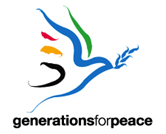Universal Language of Sport is Building Peace Between Tamil and Sinhalese Communities
September 3, 2013
Generations For Peace training and first-ever field research visit supports youth volunteers in Sri Lanka
Vavuniya, herbal Sri Lanka: Four years after the end of the bitter civil war that devastated Sri Lanka, abortion sport is proving to be a universal language for building peace between Tamil and Sinhalese communities. Generations For Peace, the Jordan-based international peace-building organisation which has been working in Sri Lanka since 2007, boosted its programmes in the Northern and Eastern Provinces with a Sport for Peace Training in Vavuniya, from 22-25 August. The training brought together 31 Tamil and Sinhalese volunteer youth leaders, divided by language and ethnicity, but sharing a passion for using sport to heal the scars of conflict between their communities.
The training coincided with the first-ever Generations For Peace Institute visit to Sri Lanka. Vishnupriya Das, a Generations For Peace University of Oxford Field Researcher, is focusing on participatory video techniques for monitoring and evaluation within communities. Alexander Hamilton, a Generations For Peace University of Oxford PhD Scholar, is researching the mental health impacts of conflict. Generations For Peace’s investment in field research is driving its learning and innovation, further strengthening the impact and sustainability of these youth-led programmes.
To support the difficult post-conflict transition for youth in their communities, the training provided new skills to run carefully facilitated sport-based activities. These activities use sport’s universality, fun and energy to engage youth to work together over time to break down stereotypes, change mentalities, and begin to build understanding between ethnicities.

Gardi Geethanie, one of the volunteers from Eastern Province participating in the training, explained: “I am a believer in building relationships and bridges with everyone in spite of the differences and difficulties we have been through. This training will certainly help me do more in my community because I live in a multi-religious and multi-ethnic community. I know that the skills I have learnt will be very useful and that I can do something to make a real change.”
Nitharsan Chandrasekaram, a volunteer from Northern Province, commented “I have had a lot of experience working on training and capacity building for community-based organisations, but the content covered in this training is new for me. I am very happy to be part of this training because I can take all my new skills and combine them with my existing knowledge and experience. There are so many issues that we need to address in this post-conflict era and Generations For Peace is coming at the right time to help us address them. We have learnt new theories which we can apply practically in the communities.”
Dinesha Suppiah, Programmes Officer at the Generations For Peace headquarters in Amman, also from Sri Lanka, commented: “This training and research visit gives these amazing volunteers skills and confidence to lead change. It was a chance to meet and work together, which they are doing without barriers, and they will now continue to work together on programmes in their own communities in October. The powerful sport-based techniques they have learnt will help them to promote tolerance and trust, and to bridge these conflict divides.”


